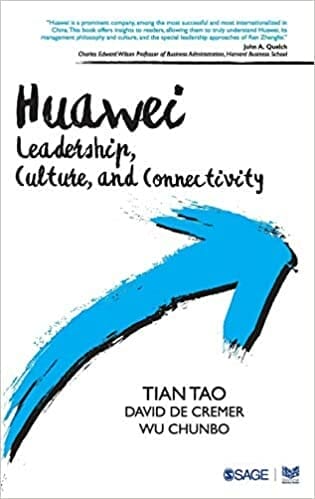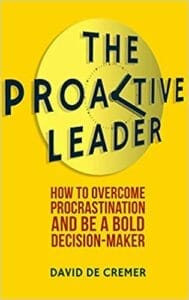Videos
Learn More About David De Cremer
The world is embracing generative AI tools like ChatGPT, but the challenge for leaders extends beyond technology adoption – it involves reshaping their leadership approach to incorporate AI as a strategic asset while creating the right conditions for your workforce to use it.
“AI knows people right now, because it has all the data about us, but it cannot be human. And as a leader, you need to understand that as a part of your job,” says David De Cremer, acclaimed behavioral scientist, Dean of Northeastern University’s D’Amore-McKim School of Business, and founder of the Centre on AI Technology for Humankind. “You can program the AI, and 99% of the time it’ll be correct, but when you need empathy, or need to anticipate potential problems that are uniquely human or address broader societal challenges – these are things that AI cannot do right now.”
Develop Essential Skills for AI-Enabled Strategic Leadership
Author of the upcoming book, “The AI-Savvy Leader: Nine Ways to Take Back Control and Make AI Work” (Harvard Business Review Press, June 2024), De Cremer is a widely respected global expert in digital transformation who helps leaders in every industry make tactical, sustainable, and ethical decisions around integrating new technologies. His action plans help businesses transition effectively to an AI-driven organization, but with a strong human-centered strategic plan underlying it. In other words, De Cremer knows the secret to make AI work for your company without sidelining your workforce or compromising on organizational ethics. More than just theory, he provides pragmatic, actionable strategies for the future of work that are rooted in both academic excellence and hands-on leadership experience.
As AI becomes a bigger part of the workforce, algorithms will likely collide with human skills. As an advisor to executives across industries, De Cremer emphasizes the critical balance between technology literacy and human understanding in leadership.
“Business leaders often let tech experts take over without understanding business needs,” he points out, stressing the importance of involving tech experts in business plans. “This means digital transformation efforts fail because business leaders are sidelined as soon as the technology is adopted. There’s no upskilling process implemented. I help by bringing nine ways business leaders should act to take back control and have a sense of confidence throughout the digital transformation project and make AI work for them.”
In “The AI-Savvy Leader,” De Cremer provides a practical blueprint for leaders to navigate this new era. His approach, rooted in the “behavioral human-centered AI” approach that he and his team developed, the fusion of technology and human literacy with the aim to empower humanity, guides leaders to use AI not just as a tool but as a catalyst for growth.
Transition to the Future of AI-Enabled Work
De Cremer’s insights are particularly crucial for leaders in HR, helping them focus on team resilience and communication. He underscores the necessity of lifelong learning and adaptability in leadership, ensuring that leaders are equipped to face the evolving challenges of AI integration.
In his book, “Leadership by Algorithm: Who Leads and Who Follows in the AI Era” (Harriman House, May 2020), De Cremer reveals his futurist side, identifying key areas where algorithms will likely collide with human skills as AI becomes a bigger part of the workforce. The Kindle version of the book quickly topped Amazon’s charts, was named among the 15 best leadership books by Wharton School Press, and was recognized by The World Economic Forum.
“The question of whether AI will replace human workers assumes that AI and humans have the same qualities and abilities — but, in reality, they don’t,” De Cremer explained in a Harvard Business Review. “AI-based machines are fast, more accurate and consistently rational, but they aren’t intuitive, emotional or culturally sensitive. And, it’s exactly these abilities that humans possess and which make us effective.”
Harness AI’s Potential While Maintaining a Human-Centered Approach
An exceptional speaker able to break down not just how AI works but how to wield it as a strategic tool for an audience of any level of knowledge, De Cremer’s expertise offers a comprehensive perspective on leadership in the AI era. His work is a valuable resource for leaders seeking to ensure that technology serves both business objectives and societal values.
Ultimately, De Cremer shows leaders how AI can be not just a tool for hitting goals on a chart, but as its own source of value in their organizations.
“As a leader, you need to have the right vision and a purpose that enables you to ask the right questions – but you also need to understand what behavioral human-centered AI is,” he summarizes. “I explain, in the perspective of what leaders do, what AI looks like as a coworker, a tool and ultimately, a source of value creation.”
# # #
Before he was appointed Dean of Northeastern University’s D’Amore-McKim School of Business, David De Cremer was Provost Chair and Professor in Management and Organisation at Singapore’s NUS Business School, the KPMG endowed Professor of Management Studies at Cambridge Judge Business School (CJBS) and a fellow at St. Edmunds College, Cambridge University (UK). In addition to serving as a scientific advisor to several multinational companies, he was also a faculty member and (visiting) professor at London Business School (LBS), China Europe International Business School (CEIBS), Harvard University, Stanford University, New York University (NYU) and Rotterdam School of Management (RSM).
He has taken up several senior leadership roles including director and founder of two research centers. In 2005, he became a fellow of the Royal Dutch Academy of Science and since 2020 (when the ranking was first published) he has been consistently part of the world’s top 2% scientists. In 2009-2010, he was named the most influential behavioral economist in the Netherlands (Top 40 of economists); in 2016 he was voted one of the Top Thought Leaders in Trust by Trust Across America; and in 2020 he was named one of 30 top management speakers by GlobalGurus.
De Cremer has published more than 300 academic papers and articles in the fields of economics, management and psychology, and his work has been featured in international media including Scientific American, Bloomberg News, The Economist, Forbes, The Financial Times, Harvard Business Review, Wall Street Journal, China Daily, South China Morning Post, The Straits Times and The Business Times.
He has a Ph.D. in behavioral economics and psychology from the University of Southampton, England, an M.A. from the University of Cambridge, and an MSc in psychology and B.A. in philosophy from the University of Leuven, Belgium.
David De Cremer is available to advise your organization via virtual and in-person consulting meetings, interactive workshops and customized keynotes through the exclusive representation of Stern Speakers & Advisors, a division of Stern Strategy Group®.
Mastering AI Leadership: Transforming Business With a Human-Centered Strategy
Smart leaders know that the real challenge in digital transformation lies not in the acquisition of the latest technology but in its strategic implementation. According to David De Cremer, author of “The AI-Savvy Leader: Nine Ways to Take Back Control and Make AI Work,” many organizations commit the majority of their budget to adopting AI, only to find that without proper integration, these investments fall short. De Cremer, a leading expert in digital transformation, addresses this critical gap with a practical playbook for executives to navigate AI integration effectively. His approach focuses on human-centered AI, viewing it as a coworker, a tool, and a driver of value creation, rather than just a means of replication or replacement. Through his insights, leaders learn to balance empathy, sympathy and strategic foresight — elements AI alone cannot provide. An exceptional speaker, De Cremer not only equips business leaders to make AI work for them but also transforms their mindset for successful digital transformation.
The Future of Asia and Its Impact on Global Leadership
How will Asia influence the way companies around the world do business in the coming decade and beyond? In the next five years, 88% of the world’s new middle class will reside in Asia, underscoring the reality that global business and leadership will be colored by Asian values, approaches and strategies in significant ways. In this presentation, based on his book, “On the Emergence and Understanding of Asian Global Leadership” (July 2021), renowned leadership advisor, digital transformation strategist and technology futurist David De Cremer explores how these factors will impact business and society, and explains why organizations will increasingly focus on needs, values and strategies that are uniquely Asian, requiring us to redefine our notion of global leadership.
Leadership, Algorithms and the Future of Work
How can leaders keep technology human-centered as machines and AI become an integral part of the workplace? In this presentation, based on his 2020 book, “Leadership by Algorithm: Who Leads and Who Follows in the AI Era,” renowned behavioral scientist, digital transformation strategist and technology futurist David De Cremer reveals key areas where algorithms will likely collide with human skills as AI becomes a bigger part of the workforce. Drawing on his own research findings, and those from thought leaders around the world, he shares fascinating insights into the challenges that an automated work environment will pose for organizations in the future and explains how leaders can be preemptive by adopting new technologies in ways that leverage the strengths of both AI and humans.
The Ethical AI Paradox: Only Humans Can Ensure Algorithmic Decisions Are Ethical
Fears around robots and machines taking our jobs are real, as are ethical concerns about devices, computers and social media algorithms governing our decisions and invading our privacy. What does this mean for the role of humans in a world increasingly dominated by AI? The idea that we can teach AI to make ethical, unbiased algorithmic decisions is misleading, says renowned behavioral scientist, digital transformation strategist and technology futurist David De Cremer. Drawing from his June 2021 research paper, “The Ethical AI Paradox,” De Cremer explains why better technology requires more – not less – human input. He emphasizes the importance of training managers to recognize human biases embedded in machine decisions so the results can be used as a learning tool. Such protocols allow organizations to recognize their own blind spots and biases so they can course correct, while also enhancing their ability to develop and use technologies responsibly.
Finding Your “Real” Leadership
In these volatile and uncertain times, leaders are confronted more than ever with the task of creating meaningful and supportive work environments. What does this mean for leaders when it comes to motivating, inspiring and empowering their people, and how do they navigate and balance their own concerns and needs with those of their teams? To deal with these challenges effectively, leaders need a strong backbone that is based on a clear set of values derived from a strong sense of self-awareness regarding their own leadership identity. Based on his own research and a series of exercises that David De Cremer designed and tested across several cultures and continents, he helps participants identify what it takes to be an effective purpose-driven leader, emphasizing the importance of taking better care of oneself along the journey.

The AI-Savvy Leader: Nine Ways to Take Back Control and Make AI Work
(Harvard Business Review Press, June 2024)
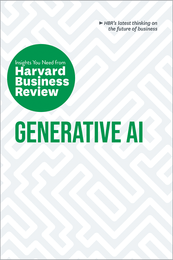
Generative AI: The Insights You Need from Harvard Business Review
(Harvard Business Review Press, January 2024)
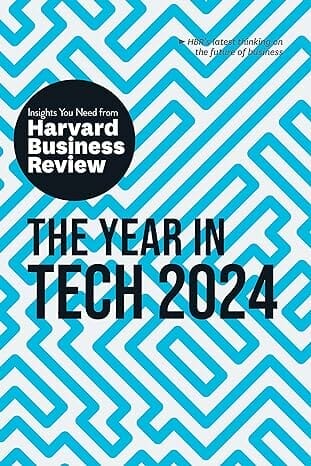
The Year in Tech, 2024: The Insights You Need from Harvard Business Review
(Harvard Business Review Press, October 2023)
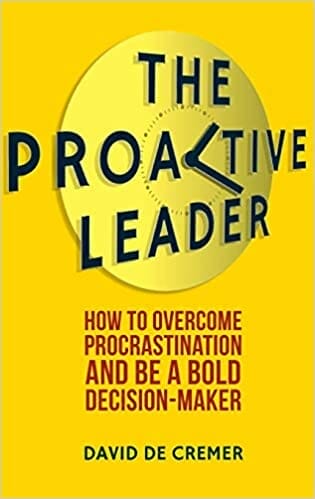
The Proactive Leader: How To Overcome Procrastination And Be A Bold Decision-Maker
(Palgrave MacMillan, June 2013)

Using Robots at Work during the COVID-19 Crisis Evokes Passion Decay: Evidence from Field and Experimental Studies
(Applied Psychology, April 2022)
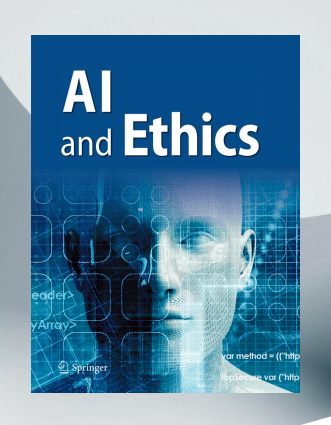
How To Use Algorithmic Decision-Making To Promote Inclusiveness In Organizations
(AI and Ethics, June 2021)

The Ethical AI—Paradox: Why Better Technology Needs More And Not Less Human Responsibility
(AI and Ethics, June 2021)
David De Cremer – Dean of the Northeastern University D’Amore-McKim School of Business and director and founder of its Centre on AI Technology for Humankind – is a widely respected behavioral scientist, digital transformation strategist and technology futurist who helps leaders in every industry make tactical and ethical decisions around integrating new technologies. A veteran leadership advisor, he has contributed to significant executive development and corporate culture initiatives in Europe, the Middle East and Asia, having served as a consultant to such companies as Novartis, AB Inbev, KPMG, Solvay, IBM, Barclays, Rabobank, Nestle, Bank of Singapore, Bosch, ING, Cisco, Mizuho, Bayer, Exmar, and DSM, among others. Dean De Cremer is available to discuss any or all of the following topics during one-on-one or small group advisory meetings. Each program can be customized to meet the needs and goals of your organization with the added option of meeting virtually or in person.
AI, Ethics and the Future of Work
- The Future of Work: Designing a World/Organization for Machines and Humans
- The Ethical AI Paradox
- The Circle of Irony in People Analytics
- Conceptualization and Implementation of Integrity-based Compliance Thinking (Contrary to Rule-based Compliance)
Leadership
- The Three Laws of Leadership
- Leadership by Algorithm
- The Psychology of Vulnerable Leadership
- Asian Global Leadership
- Leading Organizations in the AI Era: Challenges and Opportunities
- Building a Trustworthy Workplace and Cultivating a Leader’s Ability to Repair Trust
- Behavioral Approaches to Promoting Leadership Purpose
Embracing AI-Enabled Leadership Transformation
David De Cremer, Dean of Northeastern University’s D’Amore-McKim School of Business and founder of the Centre on AI Technology for Humankind, equips leaders with essential skills for navigating the AI-centric business landscape. De Cremer, a prominent behavioral scientist and author of “The AI-Savvy Leader,” offers leaders valuable insight into the nine key skills they need to integrate AI into their leadership roles. The workshop addresses how to:
- Develop a deep and lasting understanding of AI that distinguishes between essential knowledge and technical details;
- Lead with a clear vision and purpose in an AI-driven environment while utilizing AI as a coworker and value creator;
- Build confidence in leveraging AI for strategic decision-making and fostering inclusive work cultures.
Participants will gain practical knowledge on how to transform AI from a technological tool to a core value-creating organizational element that spurs growth and innovation. De Cremer’s expertise in “humanics” — blending data, technology, and human literacy — guides leaders in creating a balanced approach to AI integration, showing how to implement it in a way that enables team resilience, communication and lifelong learning. This workshop is an essential resource for leaders aiming to harness AI’s potential while maintaining a focus on ethical and human-centered leadership.
Leading with Knowledge, Purpose and Confidence
There’s a lot of pressure on leaders to be confident, knowledgeable and purpose driven. Most people, however, no matter how high up they are in an organization, experience doubt from time to time. In his transformative research and education, renowned behavioral scientist, digital transformation strategist and leadership advisor David De Cremer addresses these issues by helping leaders look at how to:
- expand their knowledge by developing an ability to see beyond what they normally see and seek out what they don’t know
- lead with clarity of purpose
- develop confidence in their value to the organization and its employees
Building on these insights, leaders are equipped with the tools they need to operate with more agility, put meaning behind their actions, and build trust by creating value with colleagues in a confident and collaborative way.
“Prof. David De Cremer has provided in-house training and education seminars for the executive committee of Exmar Shipmanagement NV since 2013. He was instrumental in developing the necessary strategic tools to grow in our position as a market leader in offering complex but elegant logistic solutions to the oil and gas industry. Apart from being a well-published and astute academic he’s also a fun person to be with. His thought-provoking insights are a must-have for every company involved in value-based entrepreneurship.”
“David De Cremer sees through the hype surrounding AI and absolutely nails the key drivers behind AI failures, walking leaders through what they need to do to achieve AI’s promise for their organizations. This is an essential read for business leaders who want to thrive in the AI economy. He shows us how we need human leadership more than ever!”
"A masterful guide, offering invaluable insights for business leaders seeking a thoughtful approach to harnessing AI's potential within their organizations and seamlessly bridging the gap between people and technology.”
“'9 Ways to Take Back Control and Make AI Work' may be the best investment a leader will make to ensure their company’s AI efforts don’t fail. It represents practical/tactical and critical approaches to the role of human leadership in the adoption of these new technologies. So many books today are long on explaining the problem and short on the solutions – this is a rare exception.”
“Today, too many business leaders are intimated by AI and as a result they stop managing their organization’s AI journey. How can we change this and ensure that our leaders are in charge to drive successful AI adoption projects. David De Cremer’s book provides clear answers to this question and illustrates carefully what it is that leaders exactly need to do. After reading this book, you’ll feel and act like an AI-savvy leader!”
“This book is an outstanding and vital resource for all leaders seeking to understand, navigate and assure successful implementation of AI within an organization. Insightful, innovative, and comprehendible with the ideal balance of theoretical viewpoints and real-world forward-thinking perspectives.”
“Takes the AI conversation to a deeper, more human, and actionable level. An excellent counterbalance to what has been an overwhelming technology led narrative”.
"No business leader today can afford to ignore AI. But the speed of change, the complexity of the technology, and the cacophony of voices are bewildering. De Cremer sees through the fog to distill crucial insights for leading with AI that successfully combine high-minded and practical advice. This book is not just a deep dive into the process of AI adoption. It is a critical examination of leadership in the digital age.”
“This is a must-read book that will support Leaders to be better prepared for the challenges of the AI age as well as consider the usage of a human-centered and inclusion approach to AI adoption.”
“David De Cremer’s ‘The AI-Savvy Leader’ is a book that every global business leader must read as AI begins to transform industries. A thoughtful and clear guide full of important tips for business leaders who want to understand how to effectively adopt and utilize AI to lead in the digital age.”
“If you are a business leader who cares about turning your AI adoption strategy into a business value creator, you’ll need to read this book. Essential, optimistic, and transforming in all aspects of your leadership in the AI era!”
Praise for “Leadership By Algorithm” “Will your next boss be a robot? In case you haven’t pondered your AI future, David De Cremer―one of the ‘World’s Top 30 Management Gurus’―has done it for you in his fascinating book, ‘Leadership By Algorithm.’ Read your future today.”
“David De Cremer, one of the top gurus in corporate culture, provides unique insight in ‘Leadership by Algorithm’ as to what leadership means in the AI age. Ignore at your peril!”
“The tech revolution is happening. But what we need now is a revolution in leadership and in organisations. David De Cremer expertly maps out how this can and must happen.”
“Everyone is talking about artificial intelligence, but no one has a clue how it will affect the way organizations are managed… until now. David De Cremer, a leading expert, has written the most informative book I’ve read on how algorithms will change leadership―and which parts are unlikely to be replaced by a machine.”
“Over the course of the last quarter century, Huawei has become one of the most important telecommunications companies in the world and, arguably, one of the most powerful Chinese companies in the global economy. Yet, there is much that is not known about Huawei and much that is misunderstood. As the foremost authority on Huawei in the world, Tian Tao brings deep knowledge and unprecedented access to help pull back the veil on one of the world’s most enigmatic companies. This book will be essential reading for politicians, pundits, and anyone interested in gaining a deeper understanding of this important company.”
Praise for “The Proactive Leader” “Why do our leaders often fail to take up responsibility and make decisions in a timely fashion? David De Cremer uses behavioral analyses to explain this important leadership failure and what to do about it.”
“An excellent guide for leaders who want to get their followers, as well as themselves, to follow through.”
“David De Cremer’s book provides excellent insights on the direct impact of a timely decision on the performance of a business team. A must-read for any business leader, especially in emerging markets.”
“Most leaders are concerned about how to make timely, precise and accurate decisions and often suffer from the failures in meeting these personal ambitions. In his brilliant book, David De Cremer uses various techniques in analyzing how people make decisions and in what way procrastination plays a role. With excellent behavioral analyses and examples, leaders will gain knowledge from understanding the roots and consequences of procrastination and learn how to mitigate the negative effects. A must-read for all leaders!”
“You have got to read this book! It is easy to read and there are tons of practical tips and tricks to help you, the modern multcultural leader, become more efficient and effective. David De Cremer’s book is an inspiration to those of us wondering why leaders hesitate to take decisions that seem to be so obvious. Once you get started, you won’t put it down!”
“Why do we delay the decisions we know that we need to make? Is it because we are afraid to fail? David De Cremer’s book gives an answer to this critical question that in our current complex global world is more and more present. After reading this book, you will not have any more excuses to delay your decisions.”

































